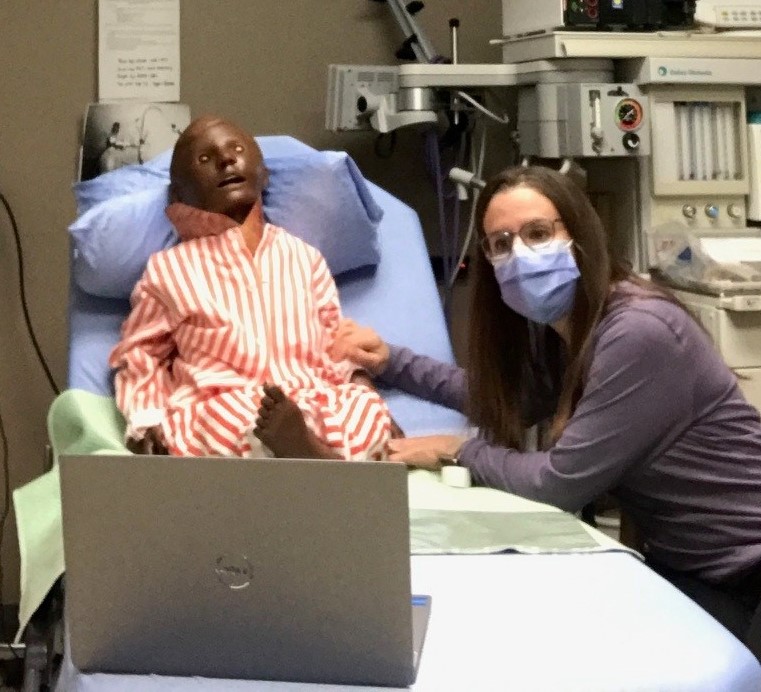A research project supported by RhPAP to empower rural nurses in effectively screening for domestic violence within their communities is being shared globally.
The “Normalizing Assessment at Triage Through Rural Simulations” has been introduced to nurses in various southern Alberta locations over the past year including Bow Island, Cardston, Crowsnest Pass, Fort Macleod, Milk River, Pincher Creek, Raymond, and Taber. Annamaria Mundell, a rural clinical educator and eSIM (Educate, Simulate, Innovate, Motivate) simulation consultant with Alberta Health Services southwest zone, helped spearhead the initiative.

— Photo supplied by Annamaria Mundell, AHS
This month, the project which received an $18,194 RhPAP research grant will be showcased at the Global Conference on Emergency Nursing and Trauma Care in Gothenburg, Sweden.
The project resulted from a collaborative effort between Alberta Health Services’ Domestic Abuse Response Team (DART), eSIM Provincial Simulation Program, and SW Zone leadership, which provides in-person and tele-simulation training for rural communities.
“It’s one of those opportunities where it’s going to put rural Alberta on the world stage and show the amazing support and work that’s being done to enhance our rural teams,” said Mundell.
More than 100 nurses have been trained to discreetly and confidently handle the sensitive issue of domestic violence when patients arrive in an emergency room or check into maternity.
“Research suggests that those residing in rural and remote locations across Alberta are more vulnerable to domestic violence, and domestic homicide is three times higher than in urban areas.” – Annamaria Mundell
“Alberta has the highest rate of police reported domestic violence cases across the Canadian provinces.”
The funding from RhPAP also highlighted the critical role of research in developing such projects. Sara Dolan, eSIM research assistant and PHD student, was instrumental in mentoring the team and analyzing the data, said Mundell.
Prior to this project, triage questionnaires inquired about domestic violence, but less than 12 per cent of the rural nurses that participated in the project ever received training on how to properly carry it out.

Through the e-SIM project, nurses were able to engage in simulated exercises in their own health-care facilities with virtual support from DART specialists located throughout the province.
Mundell emphasized the importance of offering local training to enable nurses to practise various scenarios in a familiar environment.
“We do a really comprehensive pre-brief just to be sensitive to the fact that we know that some of our participants may have actually been exposed to domestic violence and they may have stories from their practice where there’s been some trauma,” explained Mundell.
Nurses had an opportunity to learn about resources available, engage in discussions on the barriers involved in asking patients about domestic violence, and learn how to offer non-judgmental support.
Although initially piloted for nurses, Mundell stressed that the project can easily be adapted for other rural health professionals who work on the front lines.
“For nurses and health-care providers, if we don’t feel comfortable talking about domestic violence, we’re actually telling the people in our community that it’s uncomfortable and not right to talk about,” she said.
“We need to normalize the fact that this is an issue, we need to improve, and we’re okay to talk about it.”
